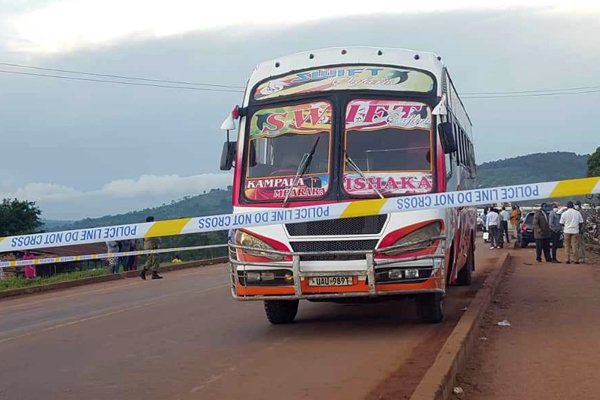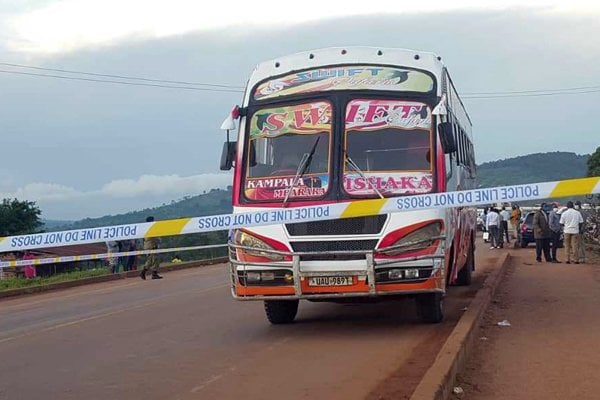Premium
How Ugandans exposed themselves to terrorists as police dropped their guard

The bus that was hit by a explosion in Mpigi District, Uganda on October 25, 2021. The explosion killed two people.
On October 20, Kenyan President Uhuru Kenyatta announced the end of curfew in the country, ending the nationwide limitation on movement at night, instituted in March 2020 at the onset of the coronavirus pandemic. "It is now time to shift our focus from survival to co-existing with the disease," he said in a televised address to mark Mashujaa Day.
In neighbouring Uganda, this was received with excitement and the video of Kenyatta’s speech was circulated widely on social media, even as Uganda maintained a 7pm to 5am curfew.
Perhaps in anticipation of a similar “gift” from President Yoweri Museveni in a week’s time, Ugandans took to bars with reckless abandon. Three days later, a bomb exploded in a Kampala suburb, Kawempe, killing a 20-year-old waitress and injuring other people.
The last time such an attack happened in Kampala was on July 11, 2010, when crowds watching a screening of the 2010 Fifa World Cup final at two locations in Kampala were bombed. The attacks left 74 dead and 85 injured. Al-Shabaab, the Somalia-based militia, claimed responsibility.
President Museveni blamed the latest attack on the Allied Democratic Forces (ADF) a rag-tag rebel group that fought the army in the late 1990s in western Uganda, but retreated to the restive DR Congo when it was flushed out of Uganda. Security sources have recently pinned the group on killings of high-profile individuals in the country such as Muslim clerics, police spokesperson Andrew Felix Kaweesi and the recent attempt on the life of Works minister and former Chief of Defence Forces Gen Katumba Wamala.
Imminent attack
The Director-General of Internal Security Organisation, Col Charles Oluka, while visiting the Eastern Africa Fusion and Liaison Unit in Entebbe on Tuesday, said they were narrowing investigations to ADF. He said 47 bomb attacks have been thwarted in recent years. The Liaison Centre coordinates intelligence from 10 cooperating countries, including Kenya, Rwanda, Tanzania, Somalia, and Ethiopia.
Despite warnings from France and Britain about an imminent attack, security agencies did not seem alarmed. Police spokesperson Fred Enanga said they were always ready for any attack. As had been the norm, checkpoints at entrances, despite being manned by security personnel, were taking only temperatures and spraying out sanitisers to prevent Covid-19 infection. Those manning bus parks no longer conduct body searches.
President Museveni, a few years ago, after the shooting of former senior police officer Muhammed Kirumira, ordered registration of SIM cards, fingerprinting of guns in security agencies and private hands, installation of security cameras, use of drones and recruitment of local defence units, and more recently, trackers on all vehicles. Efforts were made on some of these measures, but little was achieved in fighting crime.
Read here for full version of the story




